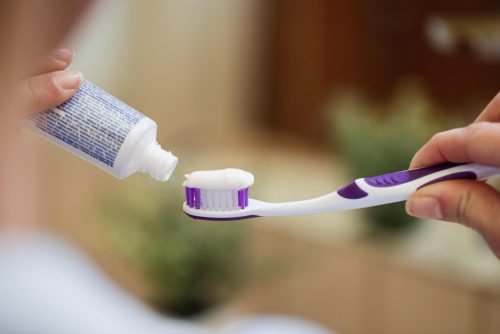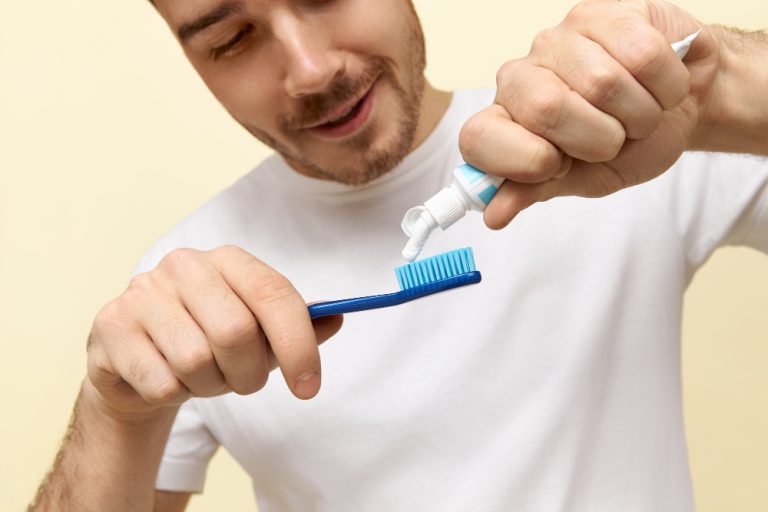Choosing the right toothpaste is more than just a routine decision—it’s a key aspect of maintaining good oral health. In recent years, the choice between fluoride and non-fluoride toothpaste has become a significant topic of discussion. This debate isn’t just about personal preference; it’s about understanding the impact each type of toothpaste can have on your dental well-being.
Fluoride toothpaste has long been a standard recommendation by dental professionals. Fluoride is a mineral that helps protect teeth from decay by strengthening enamel, the hard outer surface of your teeth. On the other hand, non-fluoride toothpaste offers alternatives for those who prefer natural ingredients or have specific sensitivities. This blog will explore the differences, benefits, and potential drawbacks of both types of toothpaste to help you make an informed decision.
What is Fluoride and Why is it Important?

Fluoride is a naturally occurring mineral found in water, soil, and various foods. When incorporated into toothpaste, fluoride plays a crucial role in dental care. Its primary benefit is its ability to strengthen tooth enamel, making it more resistant to the acids produced by bacteria in the mouth. These acids can erode enamel and lead to cavities, a common dental issue.
When fluoride is present in toothpaste, it helps to re-mineralize areas of enamel that have started to decay, essentially reversing the early stages of tooth decay. This process involves the deposition of minerals back into the enamel, which can help repair minor damage and prevent cavities from forming.
Benefits of Fluoride in Toothpaste
Fluoride toothpaste is widely endorsed by dental health professionals for several reasons. First, it offers strong protection against cavities, which is particularly beneficial for individuals with a higher risk of dental decay. Studies have consistently shown that fluoride toothpaste is effective in reducing the incidence of cavities in both children and adults.
Additionally, fluoride toothpaste can be a cost-effective way to maintain oral health. It is readily available and generally affordable, making it an accessible option for most people. Its widespread use and endorsement by dental associations underscore its effectiveness and reliability in oral hygiene.
Exploring Non-Fluoride Toothpaste
Natural Alternatives
Non-fluoride toothpaste caters to those seeking natural or organic alternatives to traditional dental care products. These toothpastes often include a variety of ingredients aimed at promoting oral health without fluoride. Common components found in non-fluoride toothpaste include:
- Charcoal: Activated charcoal is known for its ability to absorb impurities and may help with stain removal. However, its efficacy in preventing cavities compared to fluoride is still debated.
- Baking Soda: This ingredient is praised for its mild abrasive properties, which can aid in removing surface stains and neutralizing acids in the mouth. Baking soda-based toothpastes are often recommended for those who prefer a less abrasive option compared to traditional whitening products.
- Xylitol: A natural sugar alcohol, xylitol is used for its ability to reduce the growth of bacteria that cause cavities. It may also help in reducing tooth decay and improving overall oral health.
- Herbal Extracts: Many non-fluoride toothpastes include extracts from plants like tea tree oil or aloe vera, which are believed to have antimicrobial properties and can help soothe the gums.
Benefits of Non-Fluoride Toothpaste
Non-fluoride toothpastes offer several benefits, especially for those who prefer natural or organic products. Some advantages include:
- Fewer Synthetic Chemicals: Non-fluoride toothpastes often avoid synthetic chemicals and artificial additives, appealing to individuals concerned about chemical exposure and preferring more natural ingredients.
- Eco-Friendly Options: Many non-fluoride toothpastes are produced with environmentally friendly practices and packaging. This can be an important consideration for those focused on reducing their ecological footprint.
- Allergy and Sensitivity Considerations: For people with fluoride sensitivities or allergies, non-fluoride options provide a viable alternative that can help avoid potential adverse reactions.
- Preference for Natural Ingredients: Some individuals simply prefer natural ingredients for their oral care routine, believing they are gentler and more in line with a holistic approach to health.
While non-fluoride toothpaste can offer these benefits, it’s important to remember that their effectiveness in preventing cavities may not be on par with fluoride toothpastes. Understanding these differences helps consumers make informed choices based on their specific needs and preferences.
Fluoride vs Non-Fluoride Toothpaste: Pros and Cons
When choosing between fluoride and non-fluoride toothpaste, it’s essential to weigh the pros and cons of each to determine which aligns best with your dental health needs and personal preferences. Here’s a breakdown of the advantages and disadvantages of both types.
Pros of Fluoride Toothpaste

- Effective Cavity Prevention: Fluoride toothpaste is well-documented for its ability to reduce the risk of cavities. It strengthens tooth enamel and helps in the remineralization process, making teeth more resistant to decay.
- Recommended by Professionals: Dental experts generally endorse fluoride toothpaste due to its proven benefits. The American Dental Association (ADA) and other health organizations recommend it as an effective means to maintain oral health.
- Widely Available and Affordable: Fluoride toothpaste is readily accessible at most stores and comes in a variety of formulations and price points, making it an accessible choice for many people.
Cons of Fluoride Toothpaste
- Potential for Fluorosis: Excessive fluoride exposure, particularly in children whose enamel is still developing, can lead to dental fluorosis. This condition can cause discoloration or mottling of the teeth.
- Controversy Over Long-Term Use: Some individuals express concerns about the long-term health effects of fluoride, though extensive research supports its safety when used as directed.
Pros of Non-Fluoride Toothpaste
- Natural and Organic Options: Non-fluoride toothpastes often contain natural or organic ingredients, which can appeal to those looking to avoid synthetic chemicals. These products align with a preference for a more holistic approach to oral care.
- Reduced Risk of Fluoride Sensitivity: For people who experience sensitivity or allergies related to fluoride, non-fluoride toothpaste provides an alternative that avoids these issues.
- Environmental Considerations: Many non-fluoride options come in eco-friendly packaging and are produced with sustainable practices, making them a better choice for environmentally conscious consumers.
Cons of Non-Fluoride Toothpaste
- Less Effective in Cavity Prevention: Non-fluoride toothpastes typically do not offer the same level of protection against cavities as fluoride-based products. Their effectiveness can vary based on the specific ingredients used.
- Limited Professional Endorsement: Non-fluoride options do not have the same level of endorsement from dental associations. As a result, their benefits and efficacy in preventing dental issues may not be as well established.
By understanding these pros and cons, you can better assess which type of toothpaste might suit your oral health needs. Whether you prioritize fluoride’s cavity-fighting properties or prefer the natural composition of fluoride-free options, knowing the benefits and limitations of each can guide your choice.
Who Should Use Fluoride Toothpaste?
Fluoride toothpaste is recommended for a wide range of individuals, particularly those who are at higher risk for dental issues. Here’s a closer look at who benefits most from using fluoride toothpaste and why it might be the right choice for you.
Ideal Candidates
- Children and Adolescents: Fluoride toothpaste is often recommended for children and teens to help prevent cavities as their teeth develop. Proper use, under adult supervision, can aid in protecting developing enamel and reduce the likelihood of dental decay. However, it’s important to use an age-appropriate amount and avoid swallowing the toothpaste to prevent excessive fluoride exposure.
- Adults with High Cavity Risk: Individuals who are more susceptible to cavities due to factors like a high-sugar diet, certain medical conditions, or inadequate oral hygiene can benefit from fluoride toothpaste. It helps strengthen enamel and reduce the risk of new cavities.
- People with Weakened Enamel: If you have enamel erosion or other dental issues that compromise the strength of your teeth, fluoride toothpaste can provide additional protection and support the enamel-remineralization process.
Professional Recommendations
Dentists frequently recommend fluoride toothpaste for maintaining overall dental health. This recommendation is based on extensive research demonstrating fluoride’s effectiveness in preventing tooth decay. Regular use of fluoride toothpaste, combined with other good oral hygiene practices, contributes to a lower incidence of cavities and supports long-term dental health.
For those with specific concerns or conditions, consulting with a dentist can provide personalized guidance on whether fluoride toothpaste is the best choice. Dentists can assess individual needs and recommend the most appropriate dental care products based on an individual’s health history and risk factors.
Using fluoride toothpaste can be a proactive measure in maintaining dental health, especially for those at higher risk of cavities or enamel erosion. Its benefits are well-documented, making it a trusted option for many individuals seeking to protect their oral health.
Your Smile Deserves the Best: Trust Avenue Dental
At Avenue Dental, we understand that choosing the right toothpaste is just the beginning of your journey to optimal oral health. Our Spokane family dentists, Dr. Navdeep Virk and Dr. Warren Mitchell are here to provide you with professional, personalized advice tailored to your unique needs.
We invite you to visit us and experience because we’re the top-rated family dentist clinic in Spokane Valley and North Spokane. Our team is dedicated to using the latest technologies and state-of-the-art equipment to ensure you receive the best care possible. From recommending the ideal toothpaste to offering comprehensive guidance on maintaining your family’s dental health, we are committed to being your trusted partner in achieving a healthy, beautiful smile.
Your family’s dental health is too important to leave to chance—trust Avenue Dental Care for the professional care you deserve. Book now!

